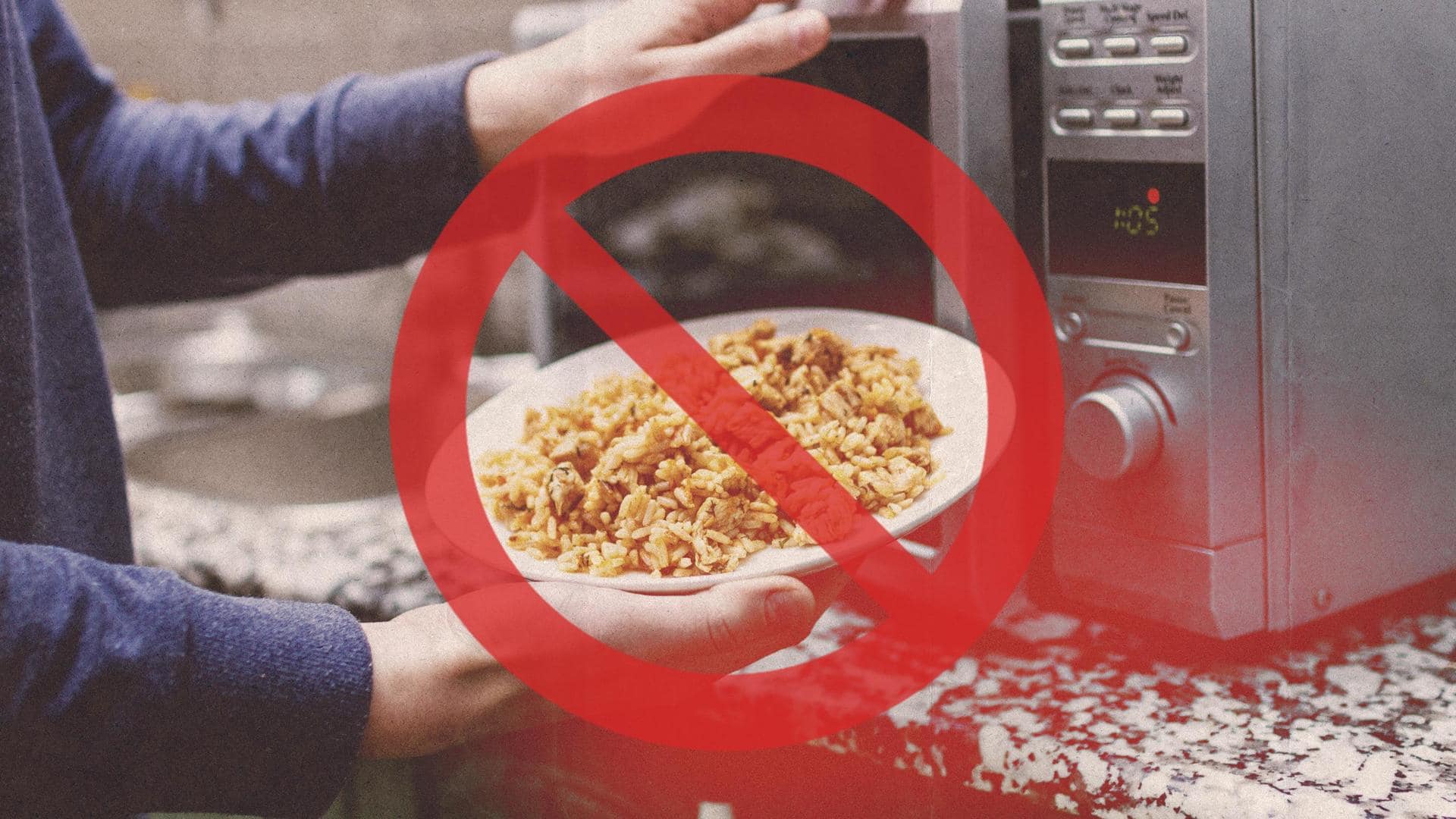
Don't ever reheat these foods in the microwave oven
What's the story
The microwave oven is a godsend for those who love to savor piping hot food but lack the time (and patience!) to use a gas stove. While it is quick and convenient, not everything should be reheated in this kitchen appliance because of its strong rays that can make a delicious meal turn into a sad husk. Avoid reheating these five foods in it.
Food 1
Fried food
Fried food involves a lot of comfort offerings. Rather than retaining their crispy texture, the food becomes soggy and dry, drenched in excessive oil. This not only ruins the taste but can also lead to unpleasant odors and feelings of sickness upon consumption. Instead, a better alternative is to reheat them by tossing them on a dry skillet.
food 2
Hard-boiled eggs
Hard-boiled eggs have a lot of water inside them which, when comes in contact with the strong rays of the microwave, builds steam, creates pressure, and blasts. Boom! Instead, either boil the egg again or place it in a heat-resistant dish and pour boiling water over it until submerged. Allow it to sit for 10 minutes to reheat properly.
Food 3
Seafood
Microwaving seafood can ruin its taste and texture, making it unappetizing. For instance, if you reheat squids in the microwave, it will result in a rubbery consistency akin to chewing on rubber bands. Also, the odor your microwave and seafood dishes may exude after reheating can instantly put you off. According to many kitchen experts, there's hardly any good way to reheat these dishes.
Food 4
Hot peppers
Heating hot peppers in the microwave is no less than a nightmare. When heated, peppers release gases that can cause you and those around you to incessantly cough, face breathing issues, and have teary eyes. This is because these peppers are packed with capsaicin, which is also the compound used in pepper sprays, which explains the impact it can have when released during microwaving.
Food 5
Rice
Microwaving or reheating rice may cause fried rice syndrome, a type of food poisoning. Improper handling and storage can also foster B. cereus bacteria growth. According to the U.S. government website Food Safety, "B. cereus can cause two types of illnesses: one characterized by diarrhea and the other, known as emetic toxin, causing nausea and vomiting. Sources include various foods, especially rice."